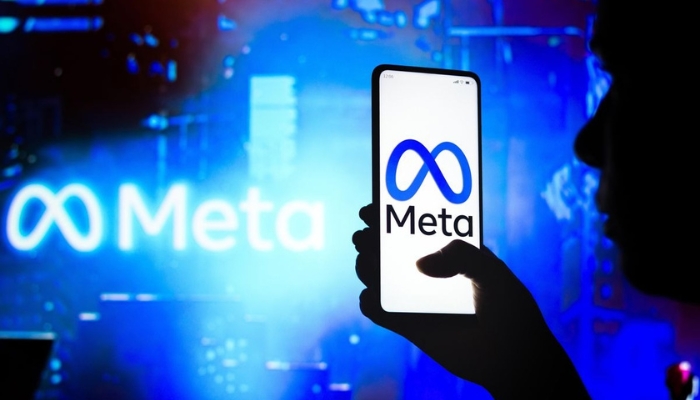
Last updated on April 4th, 2024 at 06:41 am
Arab, Muslim, and pro-Palestinian groups alarmed by company’s ‘Zionist’ policy
Meta is reviewing its hate speech policy concerning the term “Zionist,” reaching out to Arab, Muslim, and pro-Palestinian groups to ensure it’s not used as a proxy for Jewish or Israeli people. The current policy allows its use in political discourse but removes it when used as a dehumanizing or violent proxy. The company is considering revising the policy following reports from users and stakeholders.
In an email, a Meta representative stated that the company’s current policies prohibit attacks based on protected characteristics like nationality or religion, requiring a current understanding of how language is used to reference these traits. While ‘Zionist’ often denotes a person’s ideology, which is not protected, it can also refer to Jewish or Israeli people. Due to increased polarization from current events, Meta is assessing its guidance for posts using ‘Zionist.’
Organizations in the discussions, including MPower Change, 7amleh, and Jewish Voice for Peace, expressed concern in the meeting about potential further censorship of pro-Palestinian voices. Reports from 7amleh, Human Rights Watch, and Meta confirm a history of systematic silencing of Palestinian accounts on Meta platforms.
Yet, Meta maintains that BSR, an independent consultancy it collaborates with, “did raise important concerns about the under-enforcement of content… and specific instances where they felt our policies and processes had an unintended impact on Palestinian and Arab communities.”
Linda Sarsour, executive director of the Muslim advocacy group MPower Change, noted that Peter Stern, Meta’s director of content policy stakeholder engagement, provided limited details on why the company is revisiting the policy and how it will be implemented without hindering political expression. “If there’s already a policy addressing Zionism as a proxy, why are we discussing this? Why expand it?” Sarsour questioned.
The groups also raised concerns about enforcement, questioning whether humans or Meta’s algorithms, which have faced criticism for unfairly censoring Palestine-related content, would be used to detect and censor such language.
“The AI-powered systems that initially flag posts are problematic; there is no human review until it’s too late,” stated Abed Ayoub, the national executive director of the American-Arab Anti-Discrimination Committee, one of the organizations present at the meeting with Meta.
Prior to the meeting, 73 organizations sent a letter to Meta expressing concern that the proposed policy expansion could easily mischaracterize discussions about Zionists—and, by extension, Zionism—as inherently antisemitic. They argued that treating ‘Zionist’ as a proxy could lead to the incorrect and harmful conflation of criticism of the state of Israel’s actions with antisemitism.
“This decision will prevent Palestinians from sharing their daily experiences and histories, whether it’s a photo of the keys to their grandparents’ house lost during an attack by Zionist militias in 1948, or documentation of genocidal acts in Gaza over recent months, sanctioned by the Israeli Cabinet, which includes members of the Religious Zionist Party,” the letter stated. “It would also prevent Jewish users from discussing their relationships with Zionist political ideology.”
Sarsour noted that Meta provided examples of posts that would be removed. These included a post referring to Zionists as rats, which she explained would be removed due to the historical trope and demonization of Jewish people. However, she recalled that a post about Zionists taking someone’s land would not be removed, based on the presentation.
The organizations reiterated that there is no effort equivalent to the proposal regarding Zionism-related language to protect Palestinians, and they argued that expanding censorship of posts about Zionists and Zionism would not effectively combat antisemitism.
“This proposal not only fails to combat antisemitism but also overlooks the digital oppression of Palestinians. This comes at a time when multiple courts and human rights experts worldwide have recognized the plausibility of a genocide occurring in Gaza and have instructed all international actors to take measures to prevent further harm,” the letter stated.
In response to a request for comment, Corey Chambliss, a spokesperson from Meta, referred to the earlier statement regarding the “increase in polarized public discourse.” He added that Meta is exploring ways to implement a more nuanced response to such language and will continue discussions with stakeholders to refine its policy.
The policy discussion is happening amidst a critical period in an ongoing conflict, where the accuracy of information and its spread can have significant consequences. Since the attack on Gaza began in October 2023, over 25,000 Palestinians have been killed.
“Implementing a policy like this in the midst of a genocide is highly problematic,” said Ayoub, noting that his organization has received reports of censorship and account suspensions from numerous users of Meta platforms. “Introducing this policy under such circumstances will exacerbate the situation tenfold and inflict immeasurable harm on our community.”




